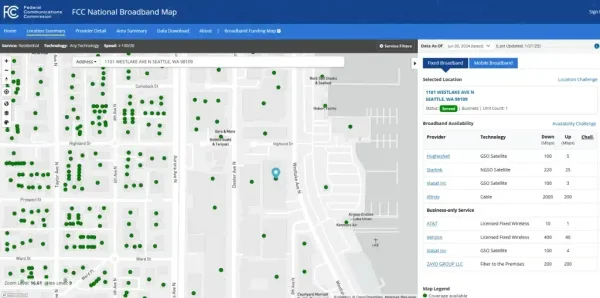AT&T: Carr FCC Will be Good for Copper Decommissioning
The company is planning to retire most of its legacy networks by the end of 2029.
Jake Neenan

WASHINGTON, Dec. 10, 2024 – AT&T has plans to get most of its legacy copper networks offline by the end of 2029. The company thinks a GOP-controlled Federal Communications Commission will probably speed up the process.
Copper networks are costly to maintain and can’t provide competitive broadband speeds, but regulators don’t want swaths of rural and low-income households to also lose access to 911 and voice services. Incumbent providers need approval from the FCC and state utility regulators to take down copper, which usually hinges on showing they or another company will still provide voice service somehow.
“I know Brendan pretty well,” AT&T CEO John Stankey said Tuesday of current Republican commissioner and incoming chairman Brendan Carr. “I think he’s gonna be much more market-oriented” on issues like “how to migrate away from legacy” networks, among other things. He spoke at the UBS Global Media and Communications Conference in New York.
.
Stankey clarified he didn’t think the current Democratic FCC was opposed to incumbents ditching copper – “they’ve just been cautious,” he said. The agency approved AT&T’s request to stop copper-based orders in 60 wire centers across 13 states earlier this year, which the company cited as pivotal for its decommissioning plans at its analyst day last week.
Blair Levin, policy advisor at New Street Research and former FCC chief of staff, wrote in an investor note Monday that he agreed Carr would “prioritize future network needs over protecting existing customers on legacy services.” AT&T executives had made similar comments at the analyst day.
“We also think that he will be clearer in directing staff to approve decommissioning requests,” Levin wrote. “Further, we think he will be an effective voice in urging states to be more accommodating to [Incumbent Local Exchange Carrier] requests to retire copper networks.”
Stankey said the state approvals have been coming along – the company said last week it had secured favorable decommissioning policies in 20 of its 21 states – but not as fast as he would like.
“We have a framework now on how to get the regulatory action done in the vast majority of our states,” he said. “That framework doesn’t scale yet because the regulator hasn’t moved enough paper through the process to be able to say ‘we’re going to approve you to do x, y, or z.’”
The plan
The ultimate plan, executives said last week, is to use a landline phone replacement called AT&T Phone Advanced to migrate customers. According to AT&T, the product also supports fax machines, alarms, and medical monitoring devices and can connect to the company’s fiber or wireless network.
The company is still in the process of securing FCC approval to use Phone Advanced as a landline replacement.
California, which recently denied an AT&T petition to shed its carrier of last resort status, is not included in the company’s plan to ditch copper by 2030.








